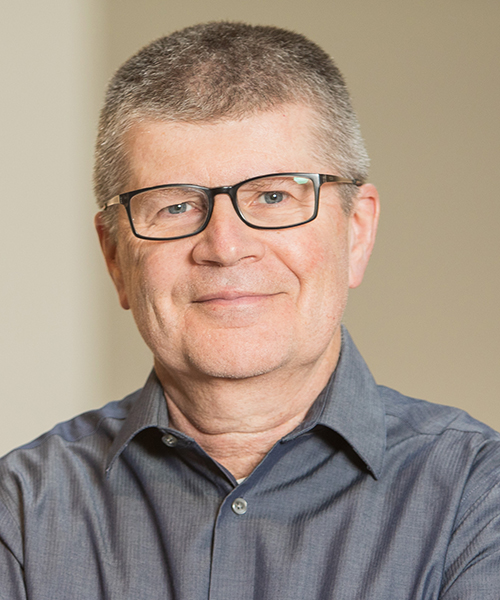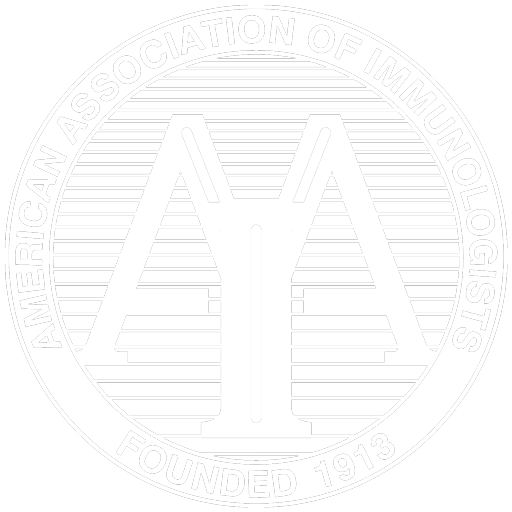Univ. of Minnesota Ctr. for Immunology

Marc K. Jenkins, Ph.D., University of Minnesota, is the recipient of the 2020 AAI Lifetime Achievement Award. Dr. Jenkins’ research provided experimental evidence for T cell anergy and the two-signal model of T cell activation. Jenkins found that CD4+ T cells required another costimulatory signal from antigen-presenting cells to proliferate and avoid becoming unresponsive. This finding challenged the dogma that CD4+ T cells only required signals from T cell antigen receptors for activation. In 1991 Jenkins and colleagues uncovered that a second signal to antigen-specific human CD4+ T cells was CD28-mediated. His research led to further studies on CD28 blockade, which became an approved therapy for rheumatoid arthritis and graft rejection in humans.
Jenkins has also made important discoveries about the anatomy of the CD4+ T cell response, cell-mediated immunity, and B cell–T cell collaboration. By transferring naive T cells from a monoclonal T cell receptor transgenic mouse strain into normal mice and tracking the transferred cells, the Jenkins lab was able to study the primary immune response. Using this technique, they showed that naive CD4+ T cells first become activated in the T cell areas of secondary lymphoid organs after interacting with resident or migrating dendritic cells. Jenkins and colleagues demonstrated that a population of the activated CD4+ T cells migrates to the edge of the follicles and then further into nascent germinal centers. His lab further showed that, during the primary immune response, many activated CD4+ T cells migrate to non-lymphoid organs, and that some remain there as memory cells. The Jenkins lab also developed a method to detect protein-specific naive B cells and their responses to vaccination.
In addition to their studies on transgenic mice, members of the Jenkins lab have examined normal polyclonal CD4+ T cell repertoires in mice. They developed a sensitive peptide:MHCII tetramer-based cell enrichment method used to detect epitope-specific naive T cell populations. Jenkins found that some epitope-specific populations are larger than others; he used this approach to document the kinetics and magnitude of expansion and contraction of these populations during bacterial infection. This new approach has led to epitope-specific naive T cell studies in humans. Jenkins and his colleagues continue to investigate CD4+ T and B cell activation in vivo in order to better understand lymphocyte activation, improve vaccines, and prevent autoimmunity.
Jenkins obtained his Ph.D. at Northwestern University with Dr. Stephen D. Miller. After a postdoctoral fellowship at the NIH with Dr. Ron H. Schwartz, Jenkins was recruited to the University of Minnesota as an assistant professor. He rose through the ranks and currently holds the position of Regents Professor in the Department of Microbiology and Immunology. He is also the director of the University of Minnesota Center for Immunology. Jenkins serves on the NIH National Advisory Allergy and Infectious Diseases Council.
Among his many honors, Jenkins received the AAI-Huang Foundation Meritorious Career Award and a MERIT Award from the NIH. He is a Distinguished Fellow of AAI and a University of Minnesota Medical School Wall of Scholarship honoree. Jenkins has also been recognized as an outstanding mentor; he has received the AAI Excellence in Mentoring Award and the Carol J. Bland Outstanding Faculty Mentor Award from the University of Minnesota Medical School.
An AAI member since 1988, Jenkins served on the AAI Council from 2008 to 2015 and was AAI President, 2013–2014. During his tenure as AAI President, two new award programs were launched: the Careers in Immunology Fellowship Program (CIFP) and the Travel for Techniques Program. Since 2014, the CIFP has provided funding to more than 200 fellows, and the Travel for Techniques Program has helped over 50 investigators travel to learn a technique in another laboratory.
Jenkins has also served AAI as a member of the Program, Nominating, and Education committees; as chair of the Nominating Committee; as an associate editor for The Journal of Immunology; and as a distinguished lecturer and major symposium speaker at the AAI annual meeting. He was a faculty member for the AAI Introductory Course in Immunology and a faculty member and director for the AAI Advanced Course in Immunology.

